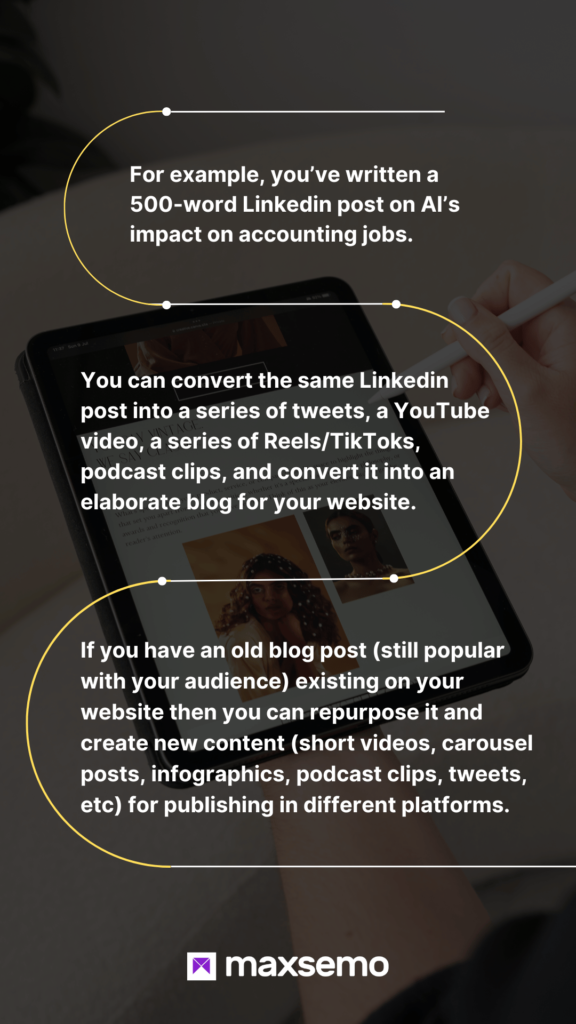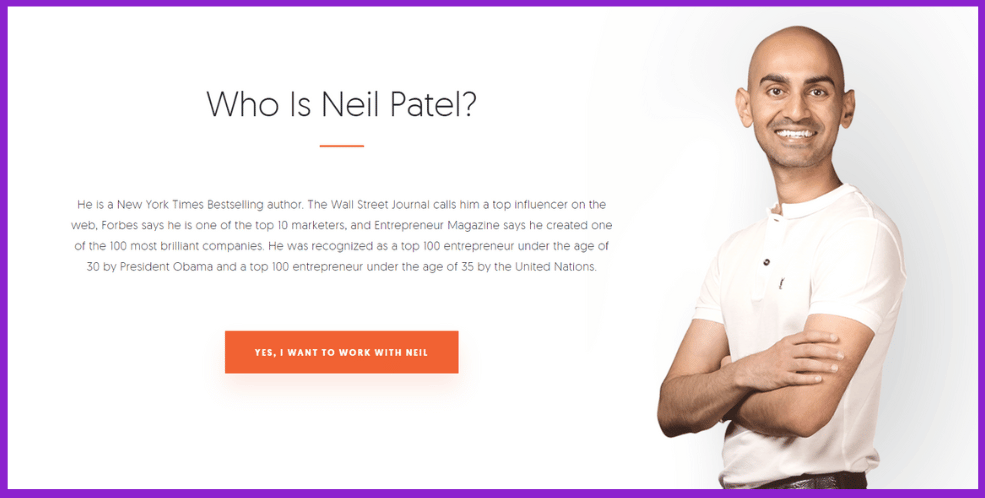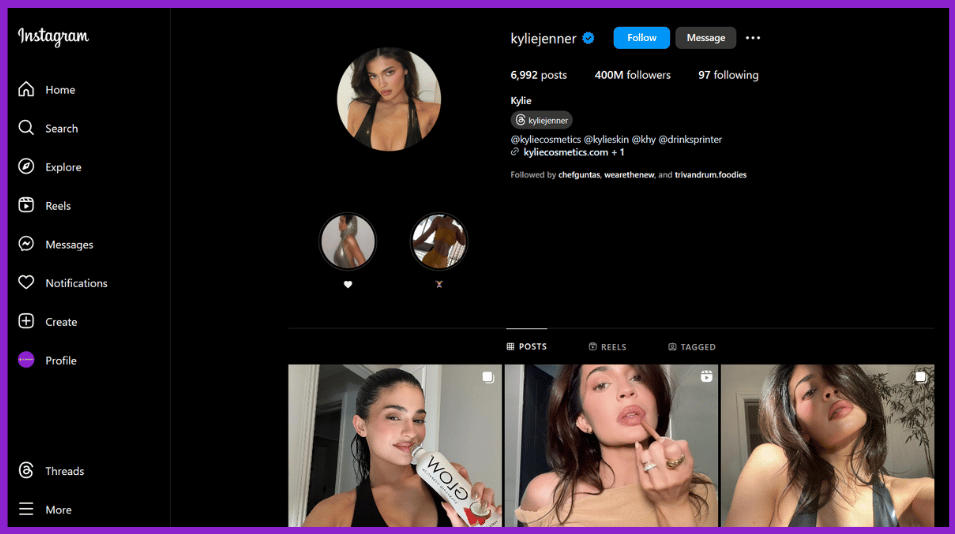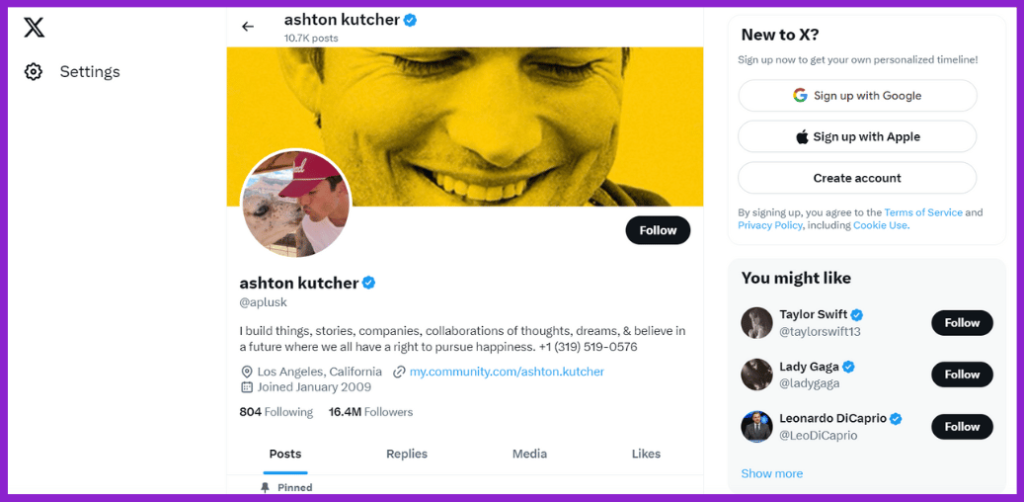
As an entrepreneur (and as a business owner), you know that branding is crucial for your company to stand out from competition.
In the same way, you can use personal branding to differentiate yourself from others in the whole business landscape.
Whether you’re a seasoned business owner, a startup owner, or a solopreneur, crafting a compelling personal brand can elevate your entrepreneurial journey to new heights.
In this blog post, we are going to explore:
- What is personal branding, from an entrepreneur’s perspective?
- Why personal branding is important for entrepreneurs?
- 10 personal branding tips for entrepreneurs can use
- Few real-life examples of entrepreneurs who leveraged personal branding
Before diving in, you can also check out my article on how freelancers can leverage personal branding to their advantage.
What is Personal Branding: From an Entrepreneur’s Perspective
Personal branding is the process of creating a unique entrepreneurial identity that distinguishes you from others in the same domain or industry.
People do mistake it as a blatant self-promotion but it is not.
Personal branding is a reflection of one’s values, personality, and unique selling proposition. It can significantly impact career success, leading to more business opportunities.

Building an online presence, establishing a strong brand identity, and having a strategic approach are crucial aspects of personal branding.
It forms the basis for lasting relationships with industry peers, partners, clients, and investors, acting as an extension of your business.
Why Personal Branding is Important for Entrepreneurs?
In a competitive business landscape, personal branding helps you differentiate from others in your entrepreneurial community.
It is like creating a memorable brand logo for your own identity. When you have a strong personal brand, people remember you (like brand recall) and your unique qualities.
Building a personal brand establishes credibility. When you showcase your expertise, authenticity, and consistency, it enhances trust among your audience.
Clients, investors, partners, and industry peers are more likely to engage with someone they perceive as credible and trustworthy.

Having a robust personal brand helps you progress in pursuing a full-time career or to be employed in an organization. Studies have shown that professionals with a strong personal brand are more likely to be hired and promoted.
Finally, personal branding plays a not-so-small role in business success, especially for entrepreneurs. According to a study, executives worldwide attribute to 43% of company market value to their CEO’s reputation.
Whether you are a CEO, CMO, CTO or holding any other executive-level position in a company you’ve founded, your personal brand can make a positive impact to the company’s reputation and success.
10 Personal Branding Tips for Entrepreneurs
Here are 10 personal branding tips you can consider to boost your entrepreneurial identity. You can customize based on your requirements and interests of your audience.
Keep in mind that as a personal brand impacts your company or companies’ reputation as well, in a positive or negative way (based on your actions).
1. Define Your Unique Value Proposition (UVP)
Identify what sets you (as an entrepreneur) apart from others in your niche or domain.
The skills, experiences, and perspectives you’ve developed over the years can help you stand out. These qualities make you valuable to your target audience.
By reflecting on your strengths, passions, and core values, you can craft a UVP that resonates with your target audience.

By having a clear UVP, you can stand out and capture attention from a crowded market.
2. Build a Strong Content Strategy
You can build a strong content strategy if you have an interest in writing or recording yourself in front of a camera.
Whether you are expressing thoughts on a niche topic, sharing tips, responding to industry news, or telling your own story, you can do all that by:
- writing blogs (on your website, or on Medium.com/Tumblr)
- social media posts (Linkedin post, tweets, Threads, Pins, etc)
- doing podcasts (on Spotify/Apple/Google Podcast/Amazon Music)
- by creating videos (Reels, TikTok, Youtube/Shorts)
You can create, distribute, reuse and repurpose your content with the aim of maximizing your brand reach and building authority.

You can use a gen AI tool like Copilot, ChatGPT or Google Gemini to help you with crafting written content. [That doesn’t mean blatantly copy-pasting AI-generated content.]
Create or edit your videos using video making tools such as InVideo, Renderforest, Animoto, and Animaker. These tools are now AI-powered as well and that means you can create videos via prompts.
3. Leverage Linkedin
When we talk about personal branding for entrepreneurs, we cannot ignore Linkedin.
Linkedin as you know is a professional networking platform with over billion users worldwide and 300+ million monthly active users.
Optimizing your Linkedin profile is the first, logical step. This is for building a great first impression when people visit your profile.
Reach out to those people you already know (it can be your industry peers, old colleagues, friends, company founders, etc) by sending them personalized connection requests or follow them.

Using the strategy explained in tip #2, push out content (in the form of a text post, short video, image, or as an article) to attract an audience who is interested in know more about you and the value you can provide them.
Also, make sure to interact with your audience (connections/followers) by engaging with their posts, reach out to them via messaging, or respond to their messages.
4. Amplify Your Social Media Presence
To amplify your social media presence, you need to be active on more than one social media platform.
For example, instead of being active only on Linkedin you can be on other social media platforms (like Twitter, Reddit, and Instagram) for the following reasons:
- These platforms may have your target audiences who are not active on Linkedin.
- Your content gets more (organic) reach and engagement.
- You can maintain your social media presence even if you can’t access one of your social channels due to unforeseen reasons.
- In the beginning, you can have two social media channels and expand to other channels if you have more resources and time.
If you are currently managing multiple social media channels, they can use a tool like Later, Buffer, or Sprout Social to schedule your social media posts and track the performance of your social media outreach.
5. Build Thought Leadership and (Search) Visibility through Blog
If you have more spare time, create your own blog/personal website. Use it to create your work/company portfolio.
Also, you can publish blogs that can help you build thought leadership and showcase your domain expertise.

Make sure to optimize your website in order to increase your visibility in Google and other search engine results.
Looking for an all-in-one platform where you can purchase the right domain name, hosting, and website builder?
Then check out these platforms: Domain.com, Namecheap, Inmotion Hosting, Automattic, Bluehost, and Hostinger.
6. Online and Offline Networking
Networking is important when it comes to personal branding, even for entrepreneurs.
You can participate in webinars, conduct live sessions (on your Linkedin/Youtube channel) and get interviewed by podcasters/journalists in your industry.
Participate in offline events like industry conferences, meetups, expos, and take up speaking sessions in these events.
These virtual and direct interactions can help you connect with various professionals, entrepreneurs, academicians, journalists, investors, and even college students.
7. Create and Build Your Own Community
Community building another great tactic you can use to build your personal brand.
Here you can create an engaged and interactive group of individuals who resonate with your values, mission, and content.
It’s about fostering relationships and a sense of belonging among people who share common interests or goals related to what you represent.

You can use messaging platforms such as WhatsApp, Telegram or Discord to create your own niche groups and invite your loyal followers.
You can grow your community by sharing your group chat links on your social media channels and your website.
Regularly engage with your community members, answer to their queries, share valuable tips and strategies, and reward them with freebies such as books, industry event tickets, software/course subscriptions, etc.
You can use your strong community to create user generated content (such as genuine feedbacks, testimonials, recommendations, etc) and use it boost your personal brand.
8. Partnering with Influencers
Partner with influencers or content creators in your niche as they can help in growing your target audience/followers and personal brand reach.
Do social media collaborations, guest blogs, interviews, give them an office tour, live interview sessions, etc.
You can approach nano-influencers (or nano-creators) as they are more approachable compared to their bigger counterparts. These creators are highly niche-focused and possess highly engaging followers.
9. Maintain Authenticity and Consistency
Building an authentic personal brand is crucial for entrepreneurs.
Whether you are publishing a blog or a social media post, share your personal journey authentically. People connect with stories. Be genuine about your successes, failures, and growth.
Ensure that your core message remains consistent across all platforms.
Whether it’s your website, social media, or in-person interactions, your brand voice and values should align seamlessly.
Be consistent when you are sharing your content and engaging with your audience/followers.
10. Manage Your Reputation
As you know, reputation is what others say about you based on their experiences and interactions with you as a personal brand.
When you build your personal brand, you have to grow and maintain your reputation in a positive way.

Regularly monitor your search and social media presence, engage with your audience via social media and messaging channels.
Creating genuine relationships (both online and offline) can contribute to a positive reputation.
When faced with criticism, it is important to listen actively, seek clarification, and consider the feedback objectively.
Use the feedback to refine your brand and enhance your reputation.
Few Real-life Examples of Entrepreneurs who Leveraged Personal Branding
Neil Patel
Neil Patel is a prominent figure in the digital marketing world, known for his expertise in SEO, content marketing, social media marketing, and entrepreneurship.
He founded and successfully sold marketing software companies CrazyEggs and Kissmetrics, and now runs his own marketing agency NP Digital.
He built his personal brand through a combination of strategic content creation, consistent presence on various platforms, and a commitment to providing value to his audience.
He started with his own personal blog NeilPatel.com which is a treasure trove of actionable advice on digital marketing, SEO techniques, and business growth strategies.

Neil Patel has contributed guest posts to numerous reputable publications and has spoken at major industry events and conferences. These activities not only help him reach a wider audience but also enhance his credibility and authority within the industry.
He maintains an active presence on social media platforms like Twitter, LinkedIn, and YouTube, where he engages with his audience directly.
He responds to comments, shares valuable resources, and participates in discussions, thereby strengthening his connection with his followers.
Elon Musk
Even though he is a controversial figure, Elon Musk is well known for running Tesla, SpaceX, Boring Company, SolarCity, and Neuralink.
Elon Musk has crafted his personal brand through a combination of innovation, vision, and bold communication.

Musk’s involvement in groundbreaking projects, such as the development of reusable rockets at SpaceX and the advancement of EV and autonomous driving technologies at Tesla, has earned him widespread admiration and cemented his reputation as an innovator pushing the boundaries of what’s possible.
Elon Musk is known for his bold and often controversial communication style, which garners significant attention from the media and the public.
His active presence on Twitter (X) allows him to directly engage with his followers and share updates about his companies, effectively shaping his image as an unconventional and daring leader.
Musk frequently appears in the media, whether it’s through interviews, keynote speeches, podcasts, or product launches.
His charisma and enthusiasm for his ventures resonate with audiences, further enhancing his personal brand as a visionary entrepreneur with a passion for solving humanity’s most pressing challenges.
Kylie Jenner
Kylie Jenner is a media personality and an entrepreneur who built a formidable personal brand primarily through her business ventures and strategic use of social media.
Jenner leveraged platforms like Instagram, Snapchat, and Twitter to connect directly with her fans and build a massive following.
By sharing glimpses into her personal life, fashion choices, and beauty routines, she cultivated a loyal fan base that eagerly awaited her updates.
Kylie’s launch of Kylie Cosmetics in 2015 with the release of her signature Lip Kits was a pivotal moment in her branding journey.

Leveraging her social media following, she effectively marketed her products, generating buzz and driving sales. The brand’s success expanded beyond lip kits to include a wide range of makeup products, further solidifying Jenner’s status as a beauty mogul.
Despite her celebrity status, Jenner has managed to maintain an aura of authenticity and relatability, which resonates with her audience.
She shares both glamorous moments and candid snapshots of her life, creating a sense of intimacy and connection with her followers.
Beyond cosmetics, Jenner has diversified her business ventures, including launching a skincare line called Kylie Skin and investing in other companies. These strategic moves have allowed her to expand her brand beyond beauty and into lifestyle and wellness.
Ashton Kutcher
Kutcher initially gained fame as an actor through his roles in popular television shows like “That ’70s Show” and films such as “Dude, Where’s My Car?”, “No Strings Attached”, and “The Butterfly Effect”.
His charm, wit, and versatility as an actor helped him cultivate a loyal fan base and establish himself as a household name.
Over time, Kutcher developed interest in technology and entrepreneurship that led him to become a successful venture capitalist and startup investor.

Through his venture capital firm, A-Grade Investments, he has made strategic investments in companies like Airbnb, Uber, and Spotify, leveraging his financial acumen and industry connections to build a diverse portfolio.
Ashton Kutcher has built his personal brand through a combination of acting talent, entrepreneurial endeavors, and social activism.
Kutcher has maintained an active presence on social media platforms like Twitter, where he shares insights, updates, and personal anecdotes with his millions of followers.
His engagement with fans and willingness to share both professional and personal experiences have contributed to his relatable and approachable personal brand.
Kutcher’s appearances in the media, whether through interviews, speaking engagements, or philanthropic endeavors, have further elevated his personal brand and provided him with a platform to promote his various interests and causes.
Conclusion
Hope this article is helpful and insightful for those who are asking the question how to build a personal brand as an entrepreneur.
Let me know your thoughts so that we have conversation in the comments section below.
